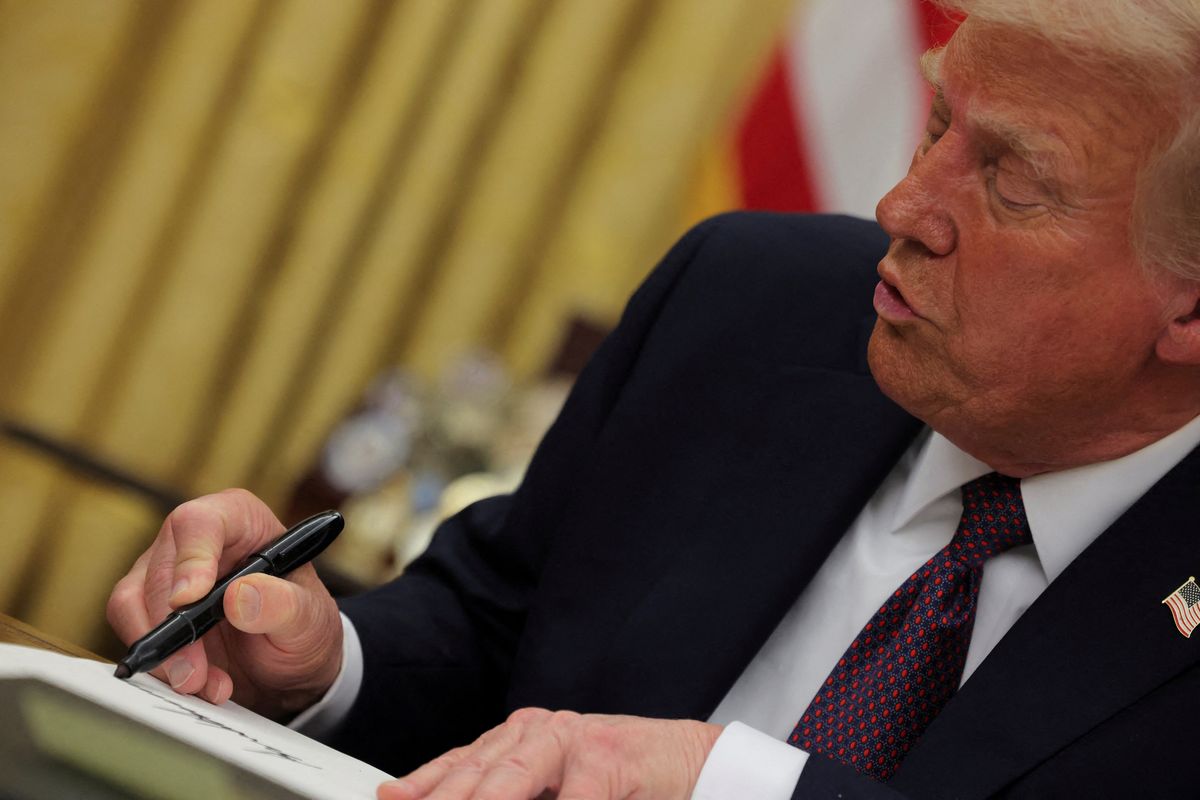What is DEI, a practice Trump is trying to dismantle?
Poll shows 70% of Republicans support elimination of diversity initiatives

U.S. President Donald Trump signs documents as he issues executive orders on Inauguration Day in Washington, U.S., January 20, 2025.
Reuters
Executive orders target both government and private sector diversity programs
Critical race theory funding in schools also blocked under new measures
Since taking office on Jan. 20, U.S. President Donald Trump has issued a series of executive orders aimed at dismantling diversity, equity and inclusion programs across the federal government and the private sector.
Trump and his allies have also blamed, without offering evidence, diversity efforts for the handling of recent deadly California wildfires and a Washington air crash. Civil rights advocates dismiss the allegations and call them dangerous.
While Trump's orders have been celebrated by some supporters and allies, they have been criticized by advocacy groups who say they might deepen inequities and undo decades of progress made to enshrine civil rights protections for marginalized groups.
What is DEI?
DEI programs have been part of workplace diversity efforts to ensure fairer representation for groups seen as historically marginalized, such as African Americans, LGBTQ+ community members, women, disabled people and other ethnic minorities in the United States.
The efforts aim to remove systemic barriers for groups affected by a legacy of racism, sexism and xenophobia.
DEI practices include training on combating discrimination, addressing pay inequity along gender or racial lines and broadening recruitment and access for underrepresented ethnic groups.
The history of DEI
DEI is a relatively new term but efforts to address inequities and structural racism go back centuries in the U.S.
More recent efforts can be traced to the landmark Civil Rights Act signed in 1964 by then-President Lyndon B. Johnson, which banned discrimination based on race, religion, national origin, color and sex, and ushered in sweeping changes to American life, including ending segregation.

The legislation followed an escalating series of demonstrations by activists in the 1950s and 1960s, amid the civil rights movement.
What does Trump say about DEI?
Trump and his allies say DEI unfairly discriminates against other Americans, including white people and men, and weakens the importance of merit in job hiring or promotion.
"My administration has taken action to abolish all discriminatory diversity, equity, and inclusion nonsense - and these are policies that were absolute nonsense - throughout the government and the private sector," Trump told the World Economic Forum after taking office for his second term.
What do advocates say in favor of DEI?
Civil rights advocates say DEI efforts help uplift marginalized groups and address the continued effects of historical and generational inequity.
The American Civil Liberties Union says DEI programs are not discriminatory. "They are essential to creating environments where everyone has a chance to succeed and addressing persistent barriers for individuals to advance in their careers," the ACLU said.
The United Nations' top human rights official, Volker Turk, said diversity was not a threat and should be treasured.
What is Trump doing to dismantle DEI?
Trump has signed executive orders calling for the elimination of government diversity programs and the removal of all federal offices and jobs related to DEI. Trump has pressured the private sector as well to rescind DEI policies.
The president has also issued an order to end funding for schools supporting critical race theory, an academic framework most often taught in law schools that rests on the premise that racial bias - intentional or not - is baked into U.S. laws and institutions.
How are Trumps efforts being received?
A Reuters/Ipsos poll found 59% of respondents, including 30% of Republicans, opposed Trump's moves to end federal efforts to promote the hiring of women and members of racial minority groups.
When asked specifically about Trump's order to close federal DEI offices, respondents were more evenly divided, with 51% opposed and 44% in favor, largely along partisan lines.
Popular
Spotlight
More from World
Pakistan says India has brought countries ‘closer to major conflict’
FO spokesperson condemned India’s actions as “aggressive and provocative,” saying that attacks on civilian areas killed innocent women and children













Comments
See what people are discussing